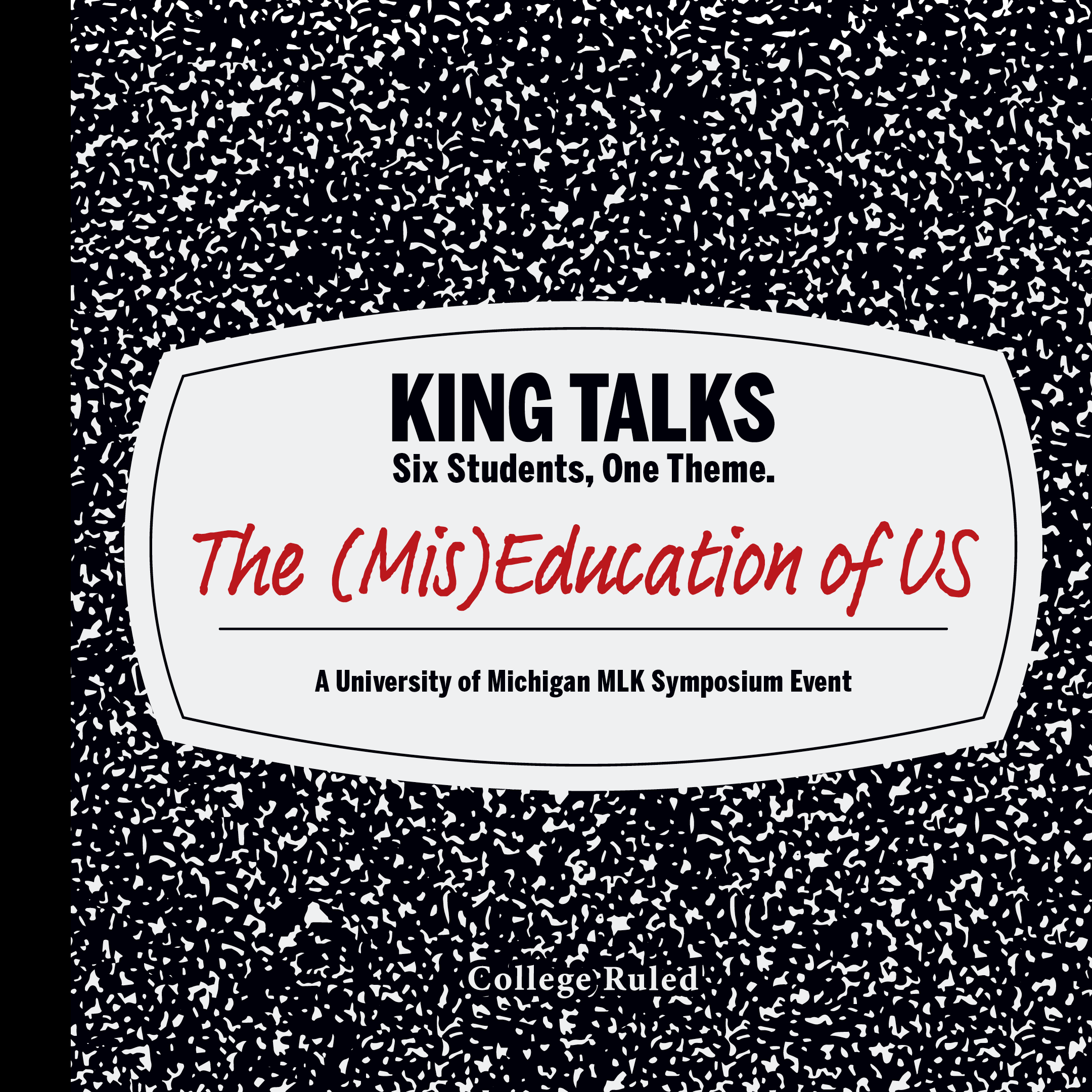
3rd Annual King Talks
The 3rd Annual King Talks featured graduate students sharing research and stories that reflected the 2020 MLK Symposium theme, “The (Mis)Education of US.”
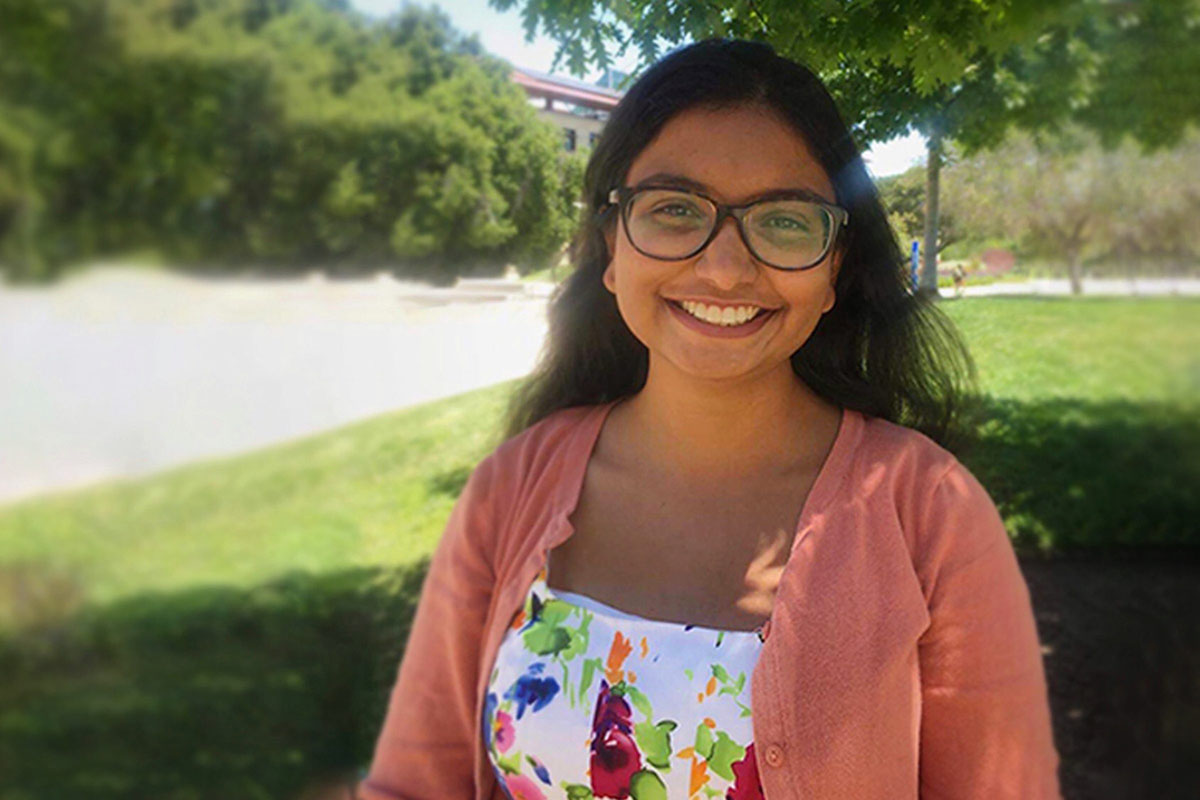
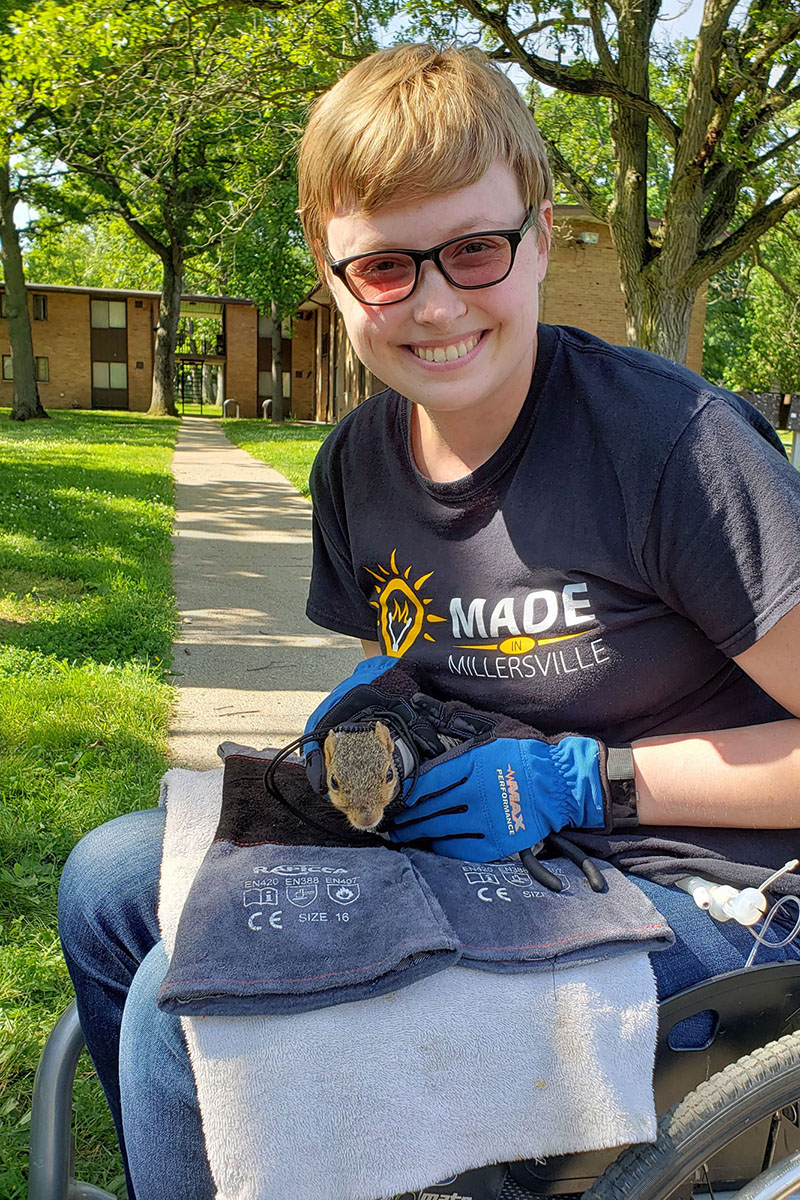
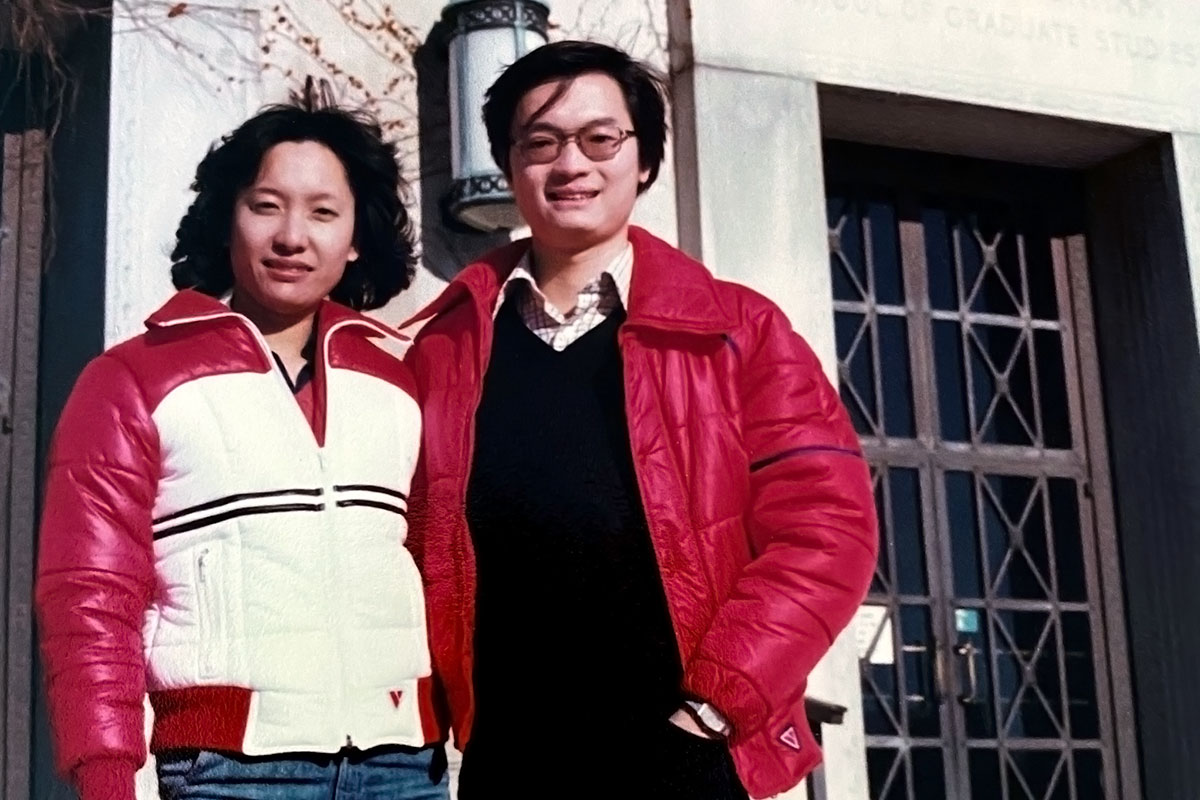
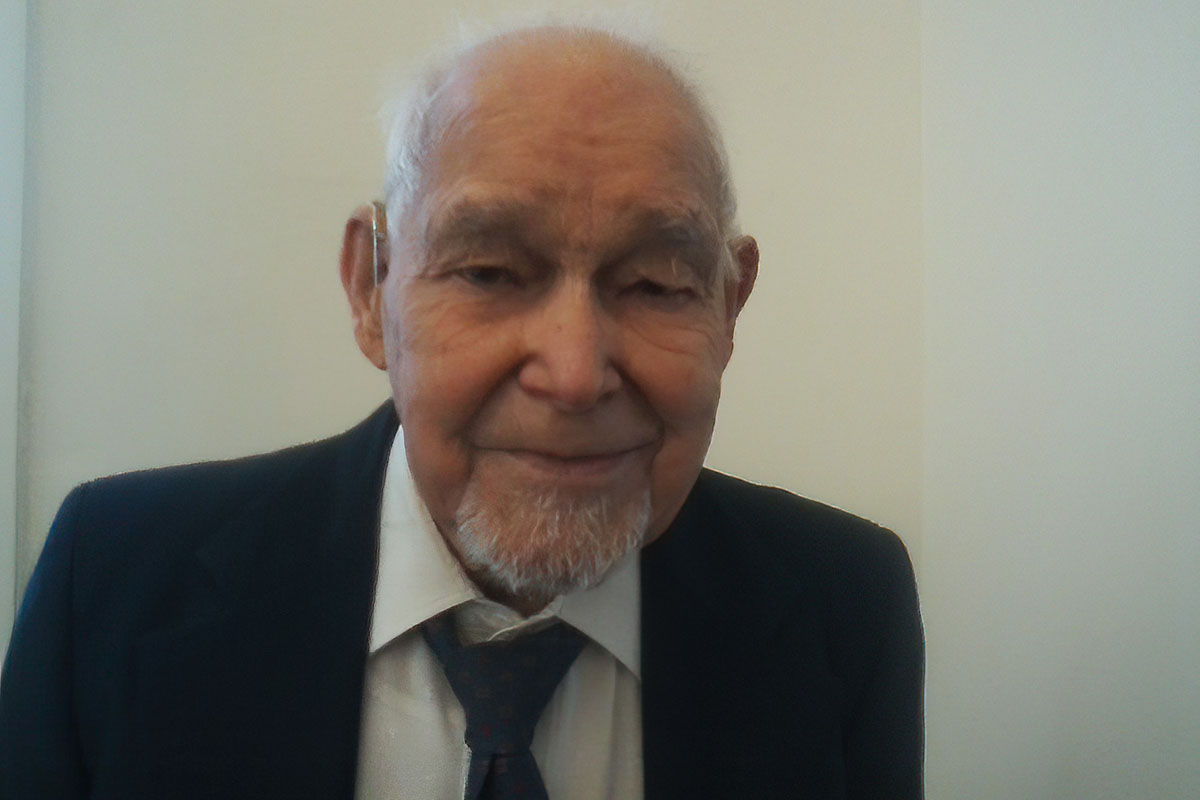
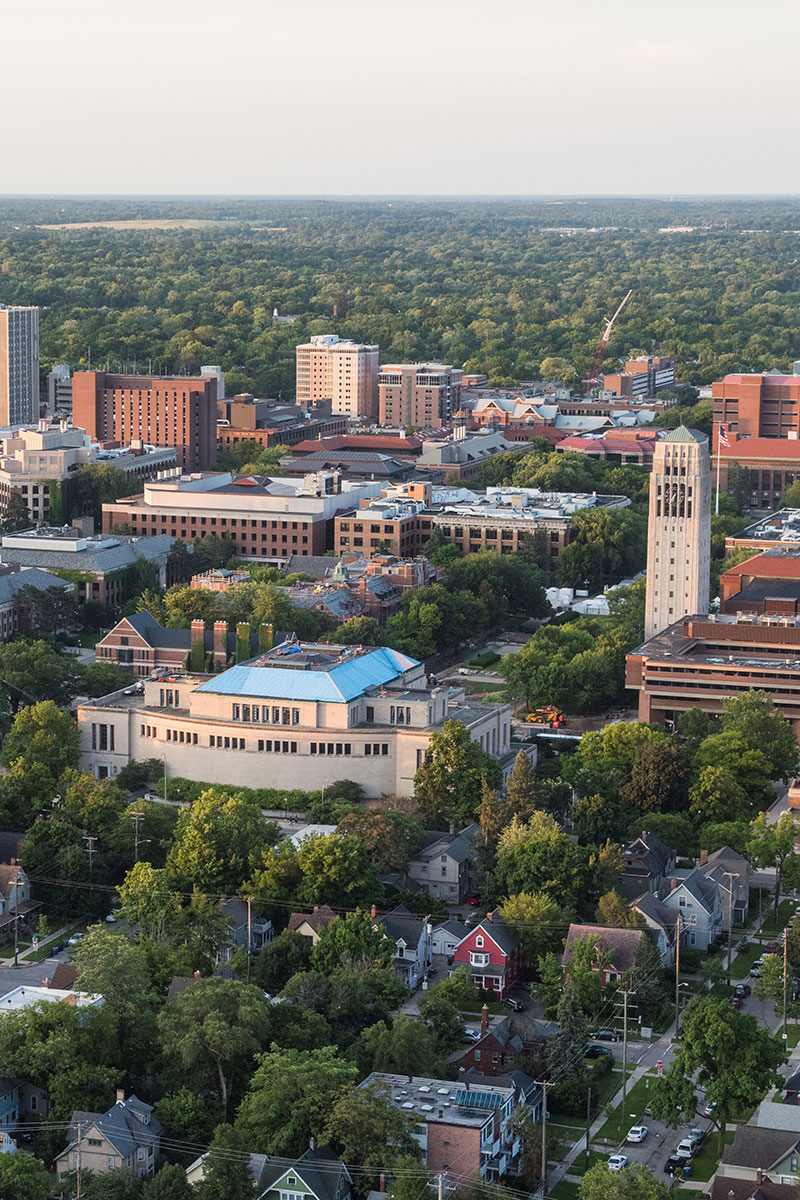

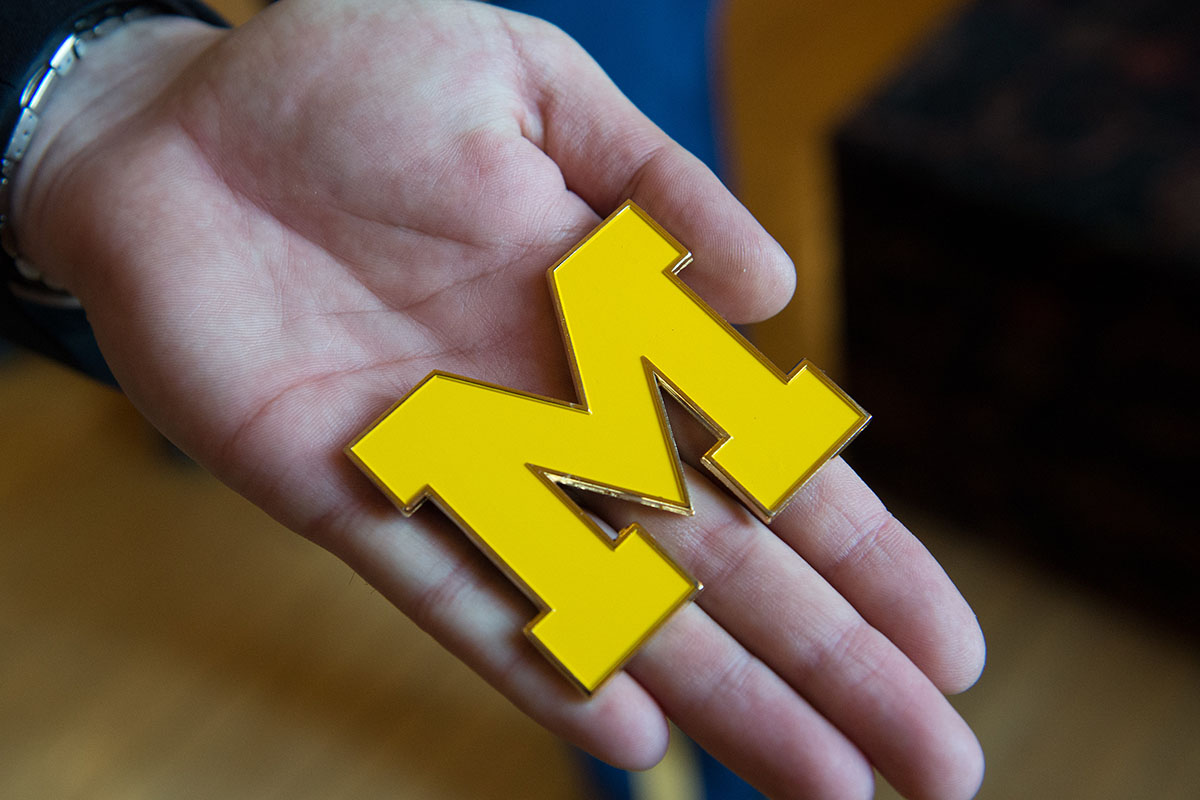
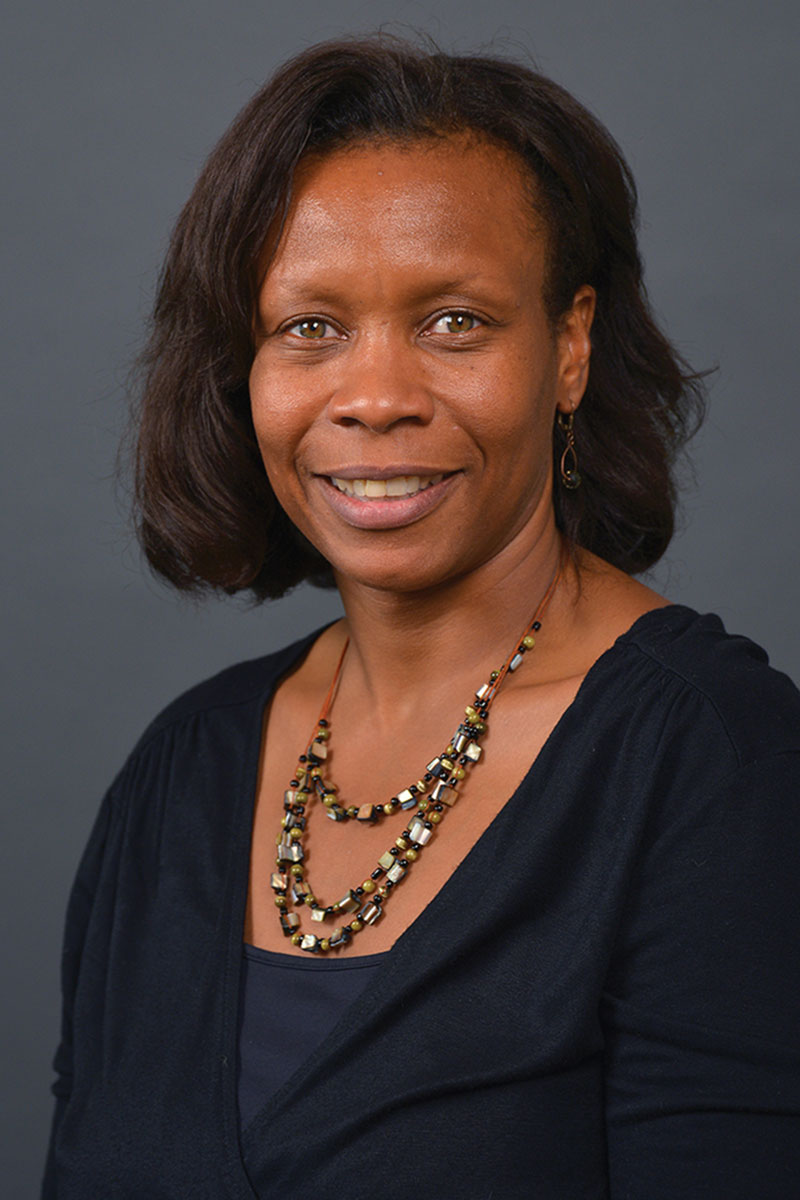
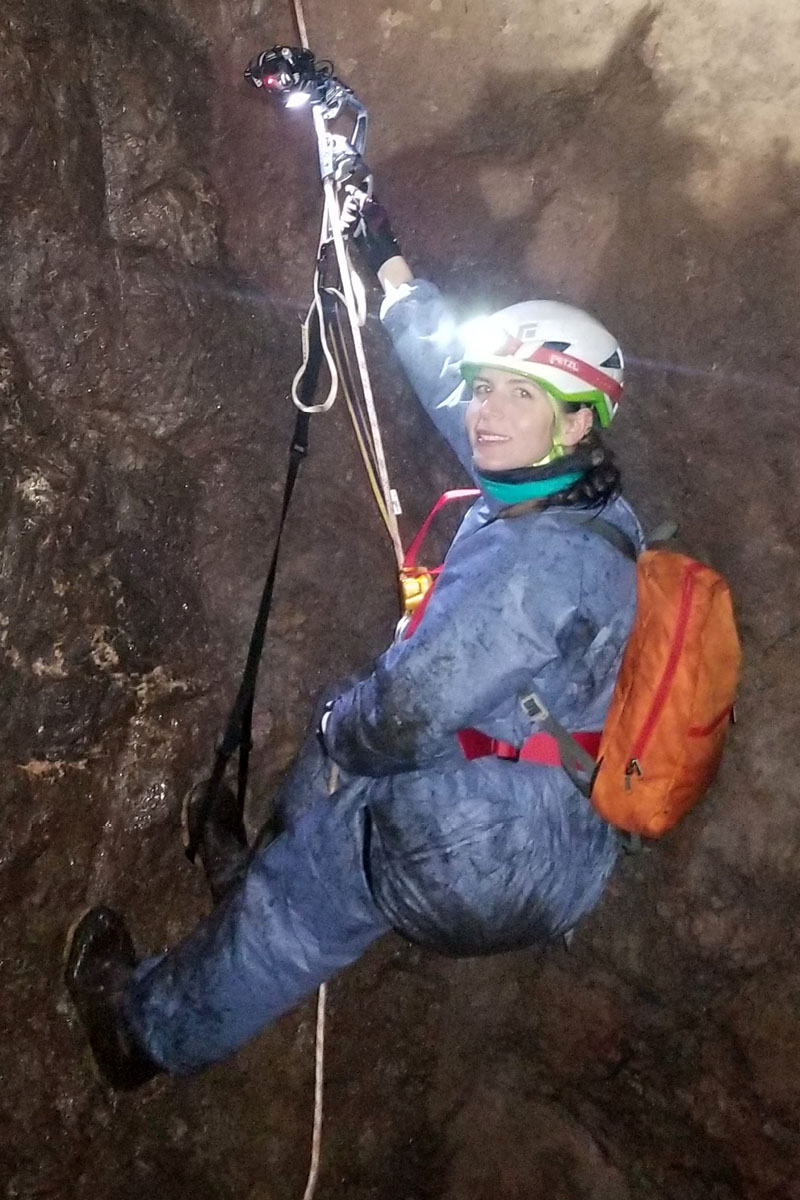
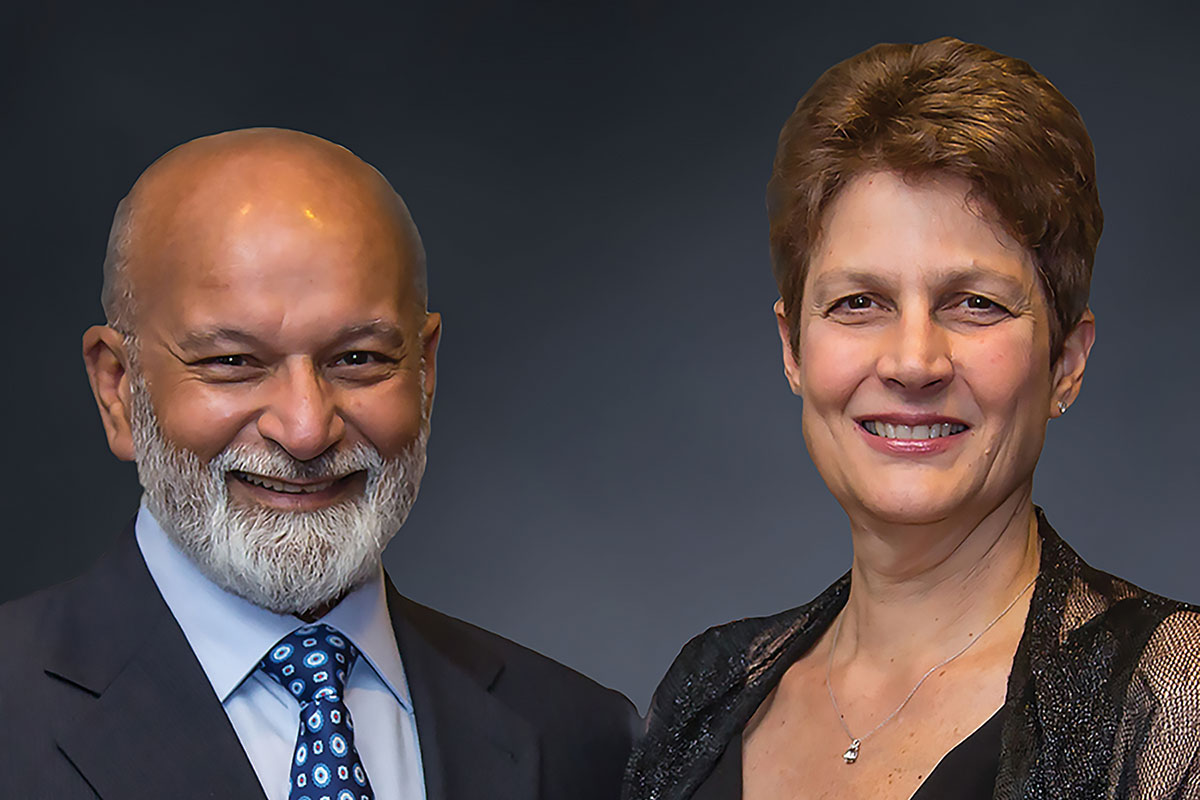
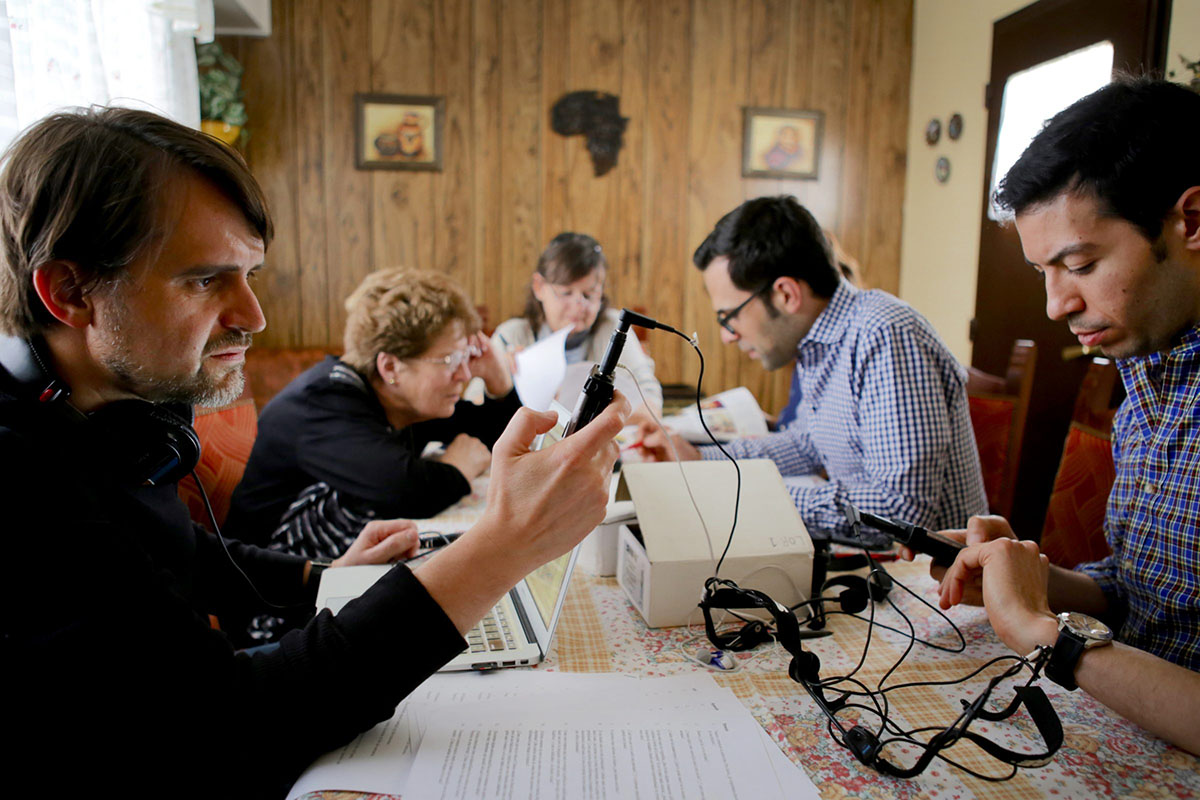
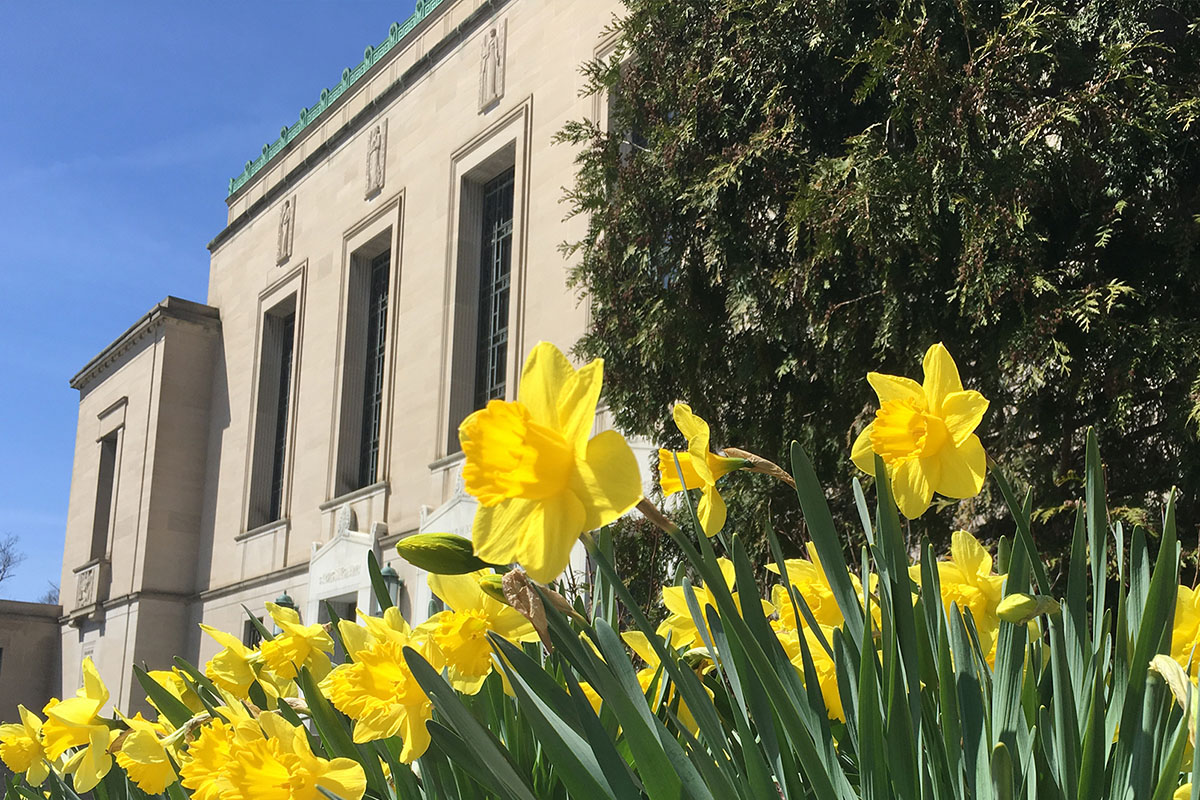
When we look back on last year, we acknowledge the challenges and pain faced by so many members of our community—and we stand in awe of their resilience. We have begun 2021 inspired by how our students and faculty rapidly adapted to change and pivoted their work in ways nobody had the instructions for. And as we envision what our new normal may look like—we will build upon what we’ve learned.
As you view the 2020 Rackham Report, I hope you’ll see the essential role you have played in the Rackham community—both in times of adversity and success. You’ll read stories of students working toward local change and global solutions. You’ll read about perseverance meeting innovation. And I hope you’ll see that it is your generosity that makes it all possible.
Thank you for your enduring partnership and for helping us meet the moment to best serve U-M graduate students. We are excited to see what the coming year holds as we continue to reimagine the graduate experience at Rackham.
With gratitude,
Mike Solomon
Dean, Rackham Graduate School
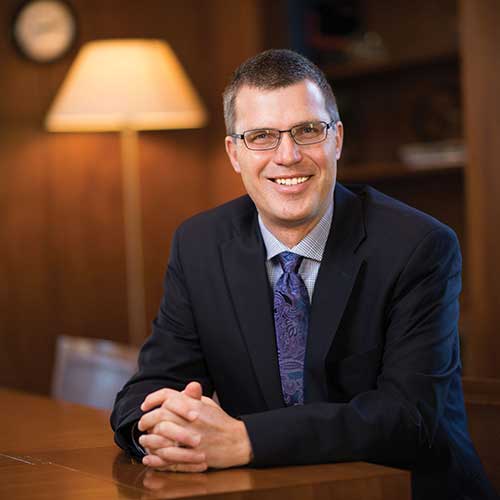
Rackham is leading a charge to reenvision graduate education at U-M in a way that is student centered and faculty led, and that emphasizes a holistic view of graduate training.
Rackham and the graduate faculty will continue to advance high academic standards while reimagining the graduate academic experience as student-centered.
The vitality of the graduate student community will be strengthened through increased accessibility of graduate education, thereby expanding the diversity and inclusion of student viewpoints and backgrounds in graduate programs.
Members of the Rackham community will recognize, value, and capitalize on their community membership.
The Rackham organization will be configured to promote staff learning, recognition, collaboration, informational transparency, and empowerment.
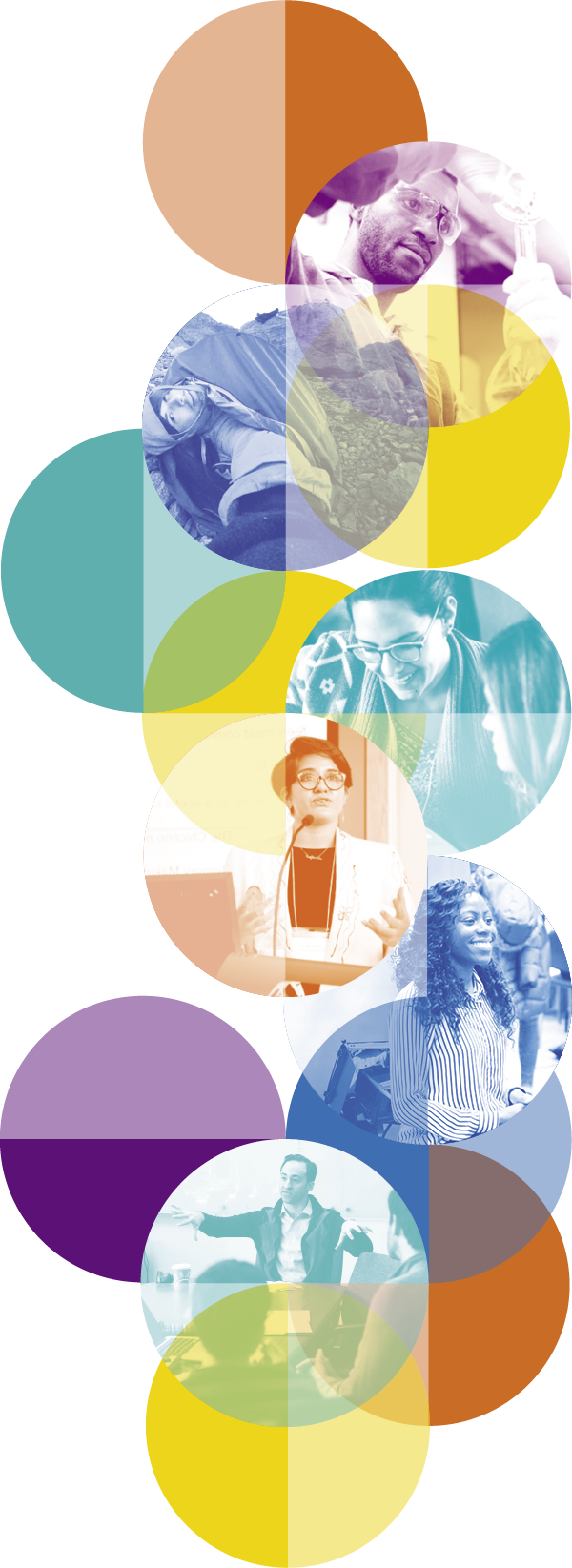
Last year, three main initiatives focused on reimagining the graduate academic experience with students at the center.
After hosting a national faculty symposium in February—Advancing New Directions in Graduate Education—Rackham invited six faculty teams to participate in a year-long pilot to implement program level alternatives to the early doctoral experience and the integration of career/professional development into graduate training.
In its effort to better embed career and professional development in graduate education, Rackham developed a pilot program to offer academic-term Internships: opportunities for doctoral candidates to apply their research skills in a professional context beyond teaching during the academic year. The program aims to enable doctoral students to pursue these opportunities without having to give up precious summer time that is needed for language training, fieldwork, or dissertation writing.
Rackham’s Faculty Allies represent a group of faculty members who collaborate with Rackham to address DEI needs and opportunities within their programs. Through this initiative, Rackham awarded 38 Faculty Ally and 22 Student Ally grants to help advance diversity work in graduate programs across campus. Rackham also offers four workshops per year in order to foster community among Faculty Allies and provide a space to share challenges, innovations, and best practices. This year, workshops focused on social justice and racial equity were organized as an iterative series for the Faculty Allies learning community.
Rackham continues in its efforts to strengthen the vitality of graduate students through increased accessibility of graduate education, thereby expanding the diversity and inclusion of student viewpoints and backgrounds in graduate programs.
Last year, Rackham updated its DEI Strategic Plan to include new initiatives that explicitly prioritize anti-racist initiatives. We seek to explore and implement options to discontinue consideration of the GRE and eliminate admissions questions about prior misconduct. Rackham will also study the potential effects of prioritizing a portion of Rackham’s financial aid funding, particularly the Rackham Merit Fellowship (RMF), for students graduating from either Minority Serving Institutions (MSIs) or Historically Black Colleges and Universities (HBCUs). Rackham also launched its Leading Equity And Diversity (LEAD) conversation series where attendees had the opportunity to hear from a diverse group of guest speakers who lead and support DEI and social justice initiatives.
In its third year, the Diversity, Equity, and Inclusion Certificate has seen significant growth. The program is designed to prepare participants to work in a diverse environment while fostering a climate of inclusivity through a series of workshops and interactive experiences. Ninety-one graduate students and postdoctoral fellows—our largest number of program graduates to date—completed the program in winter 2020.
Rackham has continued to provide general consultations to graduate programs in an effort to support graduate programs in attracting, recruiting, and supporting students from Minority Serving Institutions (MSIs). Rackham assisted programs in maintaining ongoing relationships with MSIs and continued to support planning efforts for relationship building through its Outreach and Planning Grants.
Two of our major graduate student summer programs, Michigan Humanities Emerging Research Scholars (MICHHERS) and the Summer Research Opportunity Program (SROP), were delivered solely virtual in order to mitigate the negative impact that the pandemic might have on the marginalized communities traditionally participating in both programs. Both MICHHERS and SROP faculty were dedicated partners in redesigning the programs to digitally deliver seminars, community building, small group meetings, and other program content. Twenty-nine students participated in MICHHERS. 80% of whom identified as students of color and 67% were first-generation college students. Twenty-four students participated in SROP, a ten-week virtual program that included Rackham’s first ever Virtual Research Fair to showcase the exceptional efforts of the emerging scholars.
Rackham is pursuing a multi-year review and rebalance of the RMF program to position it to contribute to Rackham’s future DEI goals. The RMF program is Rackham’s major general fund financial aid program. It provides partial fellowship funding for RMF-eligible students, thereby contributing to the diversity of the Rackham student body. The program has grown considerably in the last 15 years, in addition to having undergone a major adjustment at the time of passage of Prop 2.
In fall 2019, Rackham funded a research project, as proposed by a committee of graduate faculty and staff, to assess and understand the experiences of graduate students with disability accommodations in graduate and professional programs at the University of Michigan. The findings from the analysis of the quantitative study are sobering and the personal stories that our students shared were troubling and heart-breaking. Rackham Graduate School will pursue three specific directions in the next two years to address the needs of graduate students for disability accommodations:
Graduate education at Michigan is advanced by the partnership of faculty, students, alumni, and staff. Rackham adds value to this shared community by identifying and supporting the innovation of individual graduate faculty and programs, cross-pollinating good ideas and effective practices across disciplinary and community boundaries, and advocating for graduate education at university, state, and national levels. These initiatives were vital to Rackham’s goal of enhancing partnerships in 2020.
The COVID-19 pandemic substantially impacted the ability of many doctoral students to make progress toward the completion of their degrees. Cognizant of the urgency of the situation facing students, Rackham began a series of conversations with graduate chairs and directors to develop plans to support extended time to degree for those students whose work had been affected by significant disruptions.
Rackham North is now in its third year of programming for master’s students, doctoral students, and postdoctoral fellows in programs based on North Campus. In addition to shifting to a virtual format and in order to accommodate students who were in international time zones, home with children, or who may have encountered other pandemic related conflicts, Rackham North staggered the days and times of program offerings. To date, these program modifications allowed Rackham to host 937 students in fall 2020 compared to 226 in the fall of 2019.
The Graduate Student Mental Health Task Force is now in its second year. In the summer of 2020, the task force submitted its report which outlined the findings related to how graduate student mental health should be defined, measured, tracked, and prioritized. Rackham accepted all ten recommendations for students, graduate programs, and the university in our efforts to support the mental health of those within the U-M community.
Rackham’s Mentoring Others Results in Excellence (MORE) committee engages with faculty and graduate students to foster conversations on mentoring, with the goal of creating awareness regarding both the benefits and challenges of graduate mentoring. Specifically, MORE provides participating faculty with effective tools and practices for mentoring graduate students that strive to improve retention, productivity, and overall student success.
Over the past few years, Rackham has made a significant commitment to improving the culture and climate for staff within Rackham. In this effort, Rackham developed the strategic goal of creating an organization that will be configured to promote staff learning, recognition, collaboration, informational transparency, and empowerment.
Over the past several years, Rackham has held annual retreats to engage staff in conversations about the strategic vision as well as the internal culture and climate at Rackham. Because of the new reality of the pandemic, racial injustice, and the national political landscape, the 2020 virtual all-staff retreat focused on examining assumptions about graduate education through the lens of change management principles and guidelines.
Staff have taken an active role in the continued development of Rackham’s Strategic Vision by participating in steering teams dedicated to each of Rackham’s four strategic goals. These teams were created to help evaluate and advance each of the goals’ objectives by revising recommendations, coordinating with internal partners, and tracking and communicating progress. Rackham also reinstated the Staff Appreciation and Recognition (STAR) committee to help build and maintain a positive work environment. They work with Rackham leadership to develop events, programming, and initiatives that encourage staff interaction, recognition, and appreciation.
Rackham conducted an ergonomic and equipment needs assessment to ensure that Rackham was able to reasonably provide comfortable and efficient home workspaces for staff. Leadership also requested feedback via survey on Rackham leadership’s effectiveness of planning for the fall 2020 term, and provided opportunities to provide suggestions on preparations for the winter term.
Last, in order to learn more about how different members of Rackham’s community were experiencing the culture and climate, Rackham launched a staff climate survey with the assistance of the U-M ADVANCE Program. The survey included additional questions related to Rackham’s pandemic response as well as the organization’s adherence to our established values.
= 100 Donors
1,800
donors made 2,300+ gifts totaling $4,143,412.49
= 10 Gifts
491
gifts totaling more than $145,000 went to the Rackham Graduate Student Emergency Fund and for pandemic-related student support
Gifts≤$100
1,664
of those gifts were for $100 or less
= 10 Donors
166
of those donors generously invested in Rackham students for the first time
= 100 New Alumni
3,225
graduates joined our global network of 111,000+ alumni
Throughout the year, we invite Rackham students to recognize the significant impact donor generosity makes on their graduate career. These messages are just a few of hundreds of expressions of gratitude.
“Thank you for your generous gifts! I’m a Ph.D. student in chemistry, and I’m so grateful for all the opportunities I’ve had to grow here at U-M—both in my research and more broadly on campus. Your support makes it possible for graduate students like me to thrive in our work and beyond.”
“Thank you so much for your support! As you well know, grad school presents many challenges. My own journey has taken a year longer than expected and financial support from Rackham has made a huge impact in my ability to navigate and finish my degree.”
“Thank you very much for your support, without which I would not be able to excel and have the experiences, including funding for conferences and other adventures!”
“Thank you so much for supporting the graduate work at U-M. I’m especially thankful for the travel grant that has given me the opportunity to present my work.”
“Thanks to you, funding from Rackham has allowed me to present my work at conferences and conduct field work abroad. Your generosity is much appreciated!”
“Your support for my research has allowed me to further understand why we have to continue to build legitimate hope where we are. Thank you and Go Blue! May Pag-asa (There is hope).”
“Thank you for your donation! You’re enabling Michigan to provide a world-class education and fund cutting-edge research. I am personally grateful for the financial support that I’ve received from Michigan while pursuing my Ph.D. Thank you for helping make this possible!”
“It means so much to have the support of alumni like you. All of the great things we do here at the University of Michigan and beyond have been fostered by your help. Thank you for your generous contributions!”
“Thank you so much for your contributions to Rackham. Your help has defined what it means to be part of a global supportive community of Wolverines. I’ve grown so much during my time here and the program I’ve participated in, and I would like to deeply and truly thank you for creating the university experience I’ve had.”
The funding Rackham students receive throughout the duration of their graduate career is pivotal to their experience. Whether your gifts have supported conference travel, immersive experiences, summer funding for continued research, or emergency assistance, we hope you’ll enjoy reading about some of the students you’ve helped.
Few mammals are as ubiquitous as the squirrel, but what makes them act the way they do? Recent Rackham alum Amy-Charlotte Devitz takes us into the mind of the bushy tailed rodent.
Devitz received a Rackham Conference Travel Grant, enabling her to attend the Society for Integrative and Comparative Biology conference in Tampa Bay, Florida in January 2019. She has participated in multiple Rackham programs and workshops, including Bridges to the Doctorate, aimed at supporting students during their master’s degrees and helping them successfully transition to Ph.D. programs, as well as the Write-Together workshop series.
“I try and do events as often as I can,” Devitz says. “They’ve been helpful, and I’ve had a really good experience with them.”
Continue Reading
Bats are a potential source of the novel coronavirus behind COVID-19, but a different affliction is ravaging their own populations. Giorgianna Auteri, a Ph.D. candidate in ecology and evolutionary biology, wants to help them—and help people grasp their importance to our ecosystem.
Auteri received a Rackham Predoctoral Fellowship, which enabled her to conduct the genetic sequencing of the samples she collected. She is also the recipient of two Rackham Conference Travel Grants, which allowed her to present her research findings at two conferences—the 2017 Evolution Conference in Portland, Oregon, where she received helpful feedback on further developing the project, and the North American Society for Bat Research 2018 Symposium, where she presented her final results and was presented with the Luis F. Bacardi Bat Conservation Award.
“I’ve had a lot of support from Rackham over the years,” Auteri says. “They contributed to not only my ability to present my work, but to the costs of doing it in the first place.”
Continue Reading
Over a century ago, groups of Afrikaans-speaking Boer settlers left war-torn South Africa for Argentina. Today, their descendants speak a unique blend of Afrikaans and Spanish, and a team of U-M researchers is working to document it before it disappears.
Dominque Bouavichith, a Ph.D. student in the Department of Linguistics, is the recipient of Rackham Graduate Student Research Grants, and has participated in multiple Rackham professional development workshops, as well as a discussion series on LGBTQ issues in the academy.
Micha Fischer, a Ph.D. student in the Survey Methodology Program, is the recipient of two Rackham Conference Travel Grants to attend the European Survey Research Association conferences in Lisbon in 2017 and Zagreb in 2019. He also received Rackham Graduate Student Emergency Funds during the COVID-19 pandemic and attended several Rackham workshops during his first year to better acclimate to U-M and life in the United States.
Jiseung Kim, a Ph.D. student in linguistics, is a recipient of the Barbour Scholarship, enabling her to spend an entire year focused on her research. She says she also enjoys using the study spaces in the Rackham Building.
Continue Reading
For as long as there has been human civilization, it has been shaped in part by the climate. Rackham history Ph.D. candidate David Patterson is exploring how medieval Europeans thought about the world around them.
Patterson is a recipient of a Rackham Graduate Student Research Grant, which allowed him to travel to Europe to conduct his field work. He also received a Rackham Predoctoral Fellowship, Conference Travel Grant, and has participated in Rackham professional development workshops that helped him develop his teaching philosophy.
“I’ve had Rackham support almost every semester I’ve been at Michigan,” Patterson says. “It’s been really helpful for research, finishing my dissertation, and developing as a scholar and a teacher.
Continue Reading
It often conjures images of farms or forests, but what does it really mean for a place to be “rural”? Rackham student Surabhi Balachander is looking for a new definition that reflects people's lived experiences.
Balachander runs the Rural America Working Group at U-M, an interdisciplinary workshop that brings people from across the university together to think about and work on topics related to rural areas of the United States. The group receives most of its funding and support from Rackham.
Continue Reading
We welcomed 941 new doctoral students and 1,700 new master’s students in 2020.
= 100 Students
5,484
doctoral students
= 100 Students
3,138
master’s students
= 100 Students
1,400+
postdoctoral fellows
= 10%
94%
of doctoral students are fully funded
= 10 Dissertations or Theses Defended
834
dissertation and thesis defenses
= $100,000
$1,290,060
in emergency and COVID-19-related funding was disbursed among more than 760 Rackham students

The 3rd Annual King Talks featured graduate students sharing research and stories that reflected the 2020 MLK Symposium theme, “The (Mis)Education of US.”
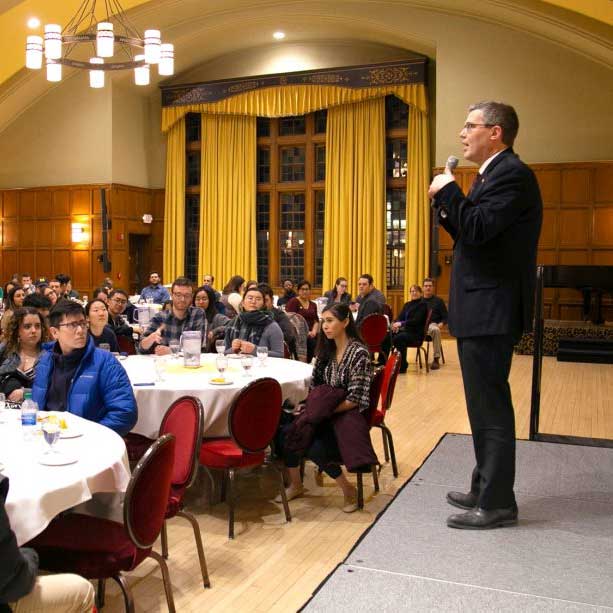
In a ceremony at the Michigan League, 107 Rackham students received a special pin with the letters “PhC,” marking their transition to doctoral candidacy.
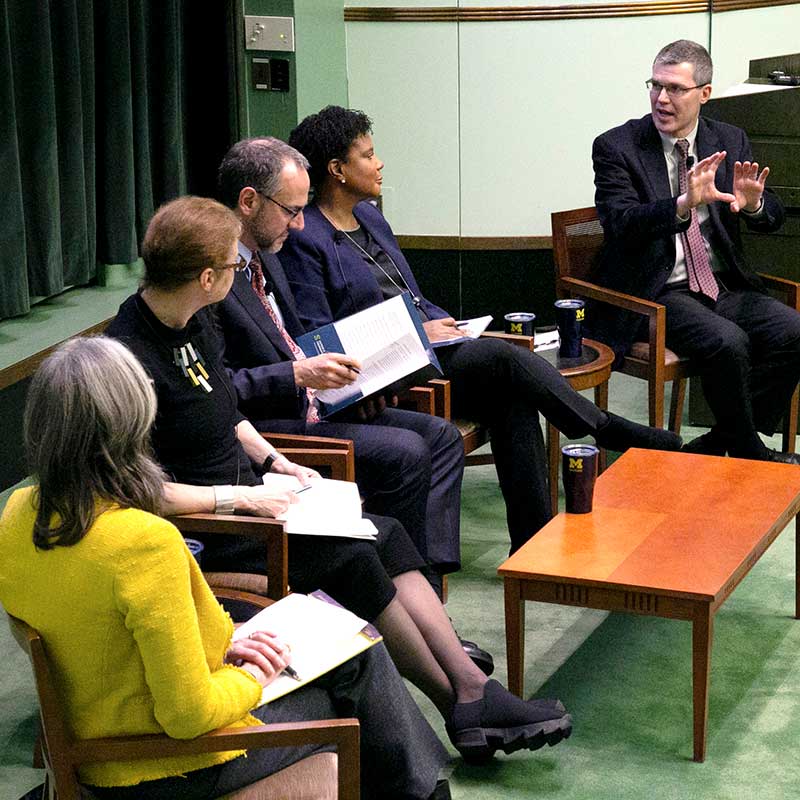
Leaders from top universities, foundations, and research organizations convened at Rackham for Advancing New Directions in Graduate Education to exchange ideas on the future of the graduate student experience.
March 16 marked the first day of virtual classes at U-M and the beginning of a rapid ramp-down in most in-person activities.
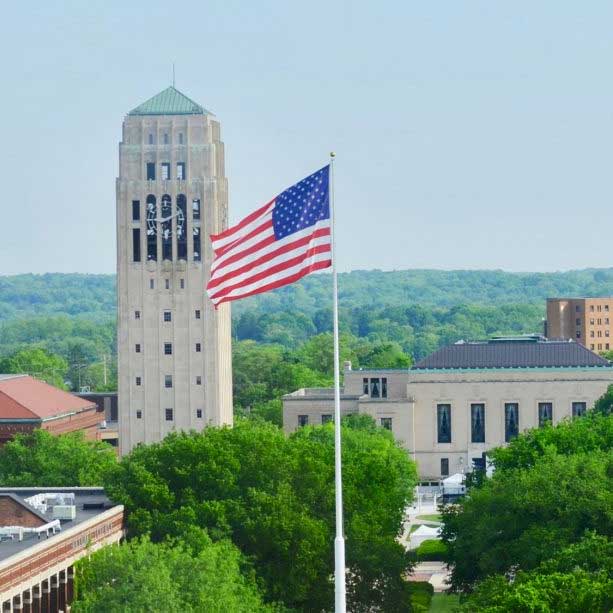
U-M graduate programs continue to be ranked highly in the U.S. News & World Report’s Best Graduate Schools.
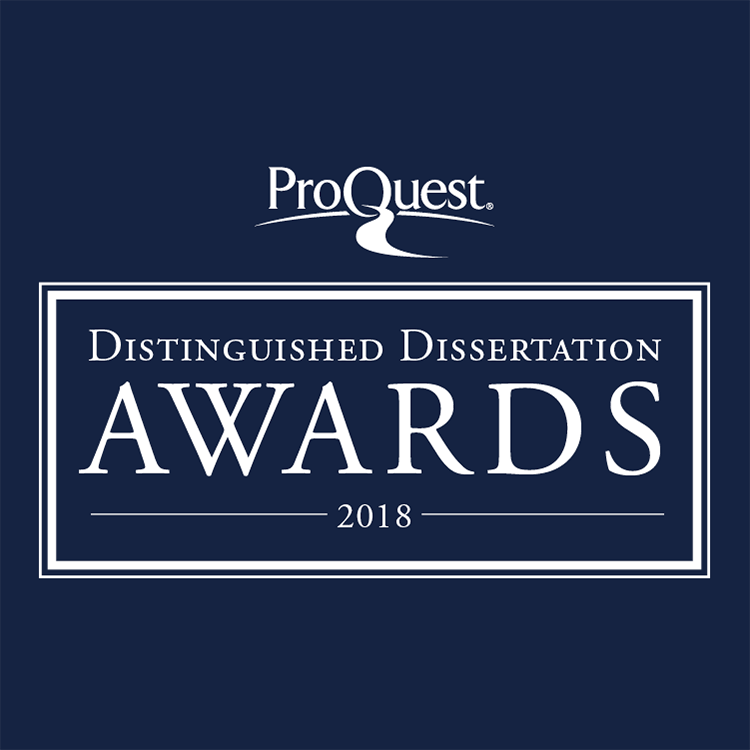
The ProQuest Distinguished Dissertation Award recognizes exceptional work produced by doctoral students for the high caliber of their scholarship and the significance and interest of their findings.
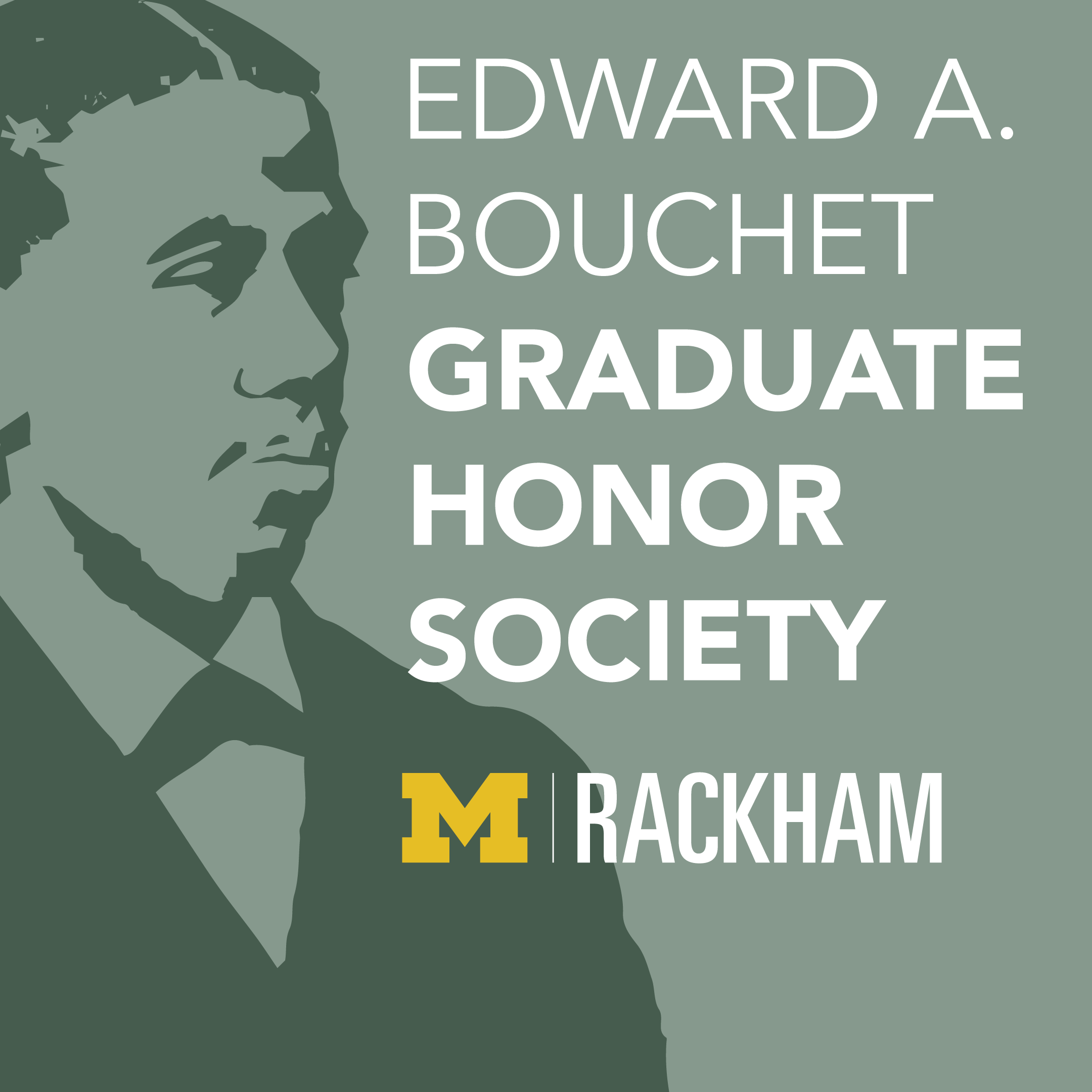
The Bouchet Honor Society, named for the first African-American doctoral recipient in the United States, recognizes outstanding scholarly achievement and promotes diversity and excellence in doctoral education.
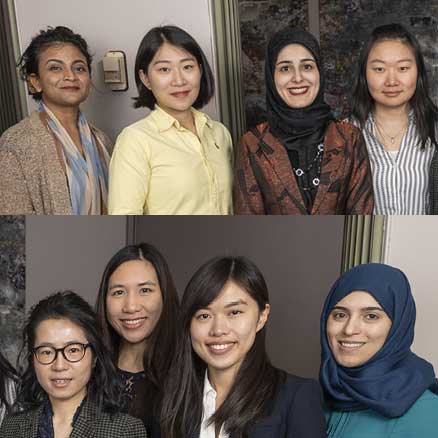
The Barbour Scholarship is among the oldest and most prestigious awards granted by the University of Michigan, and it funds exceptional female graduate students from Asia and the Middle-East.
The Rackham Predoctoral Fellowship supports outstanding doctoral candidates working on dissertations that are unusually creative, ambitious, and impactful.
The Outstanding Graduate Student Instructor Awards recognize the efforts and accomplishments of GSIs who demonstrate extraordinary dedication and excellence as teachers.
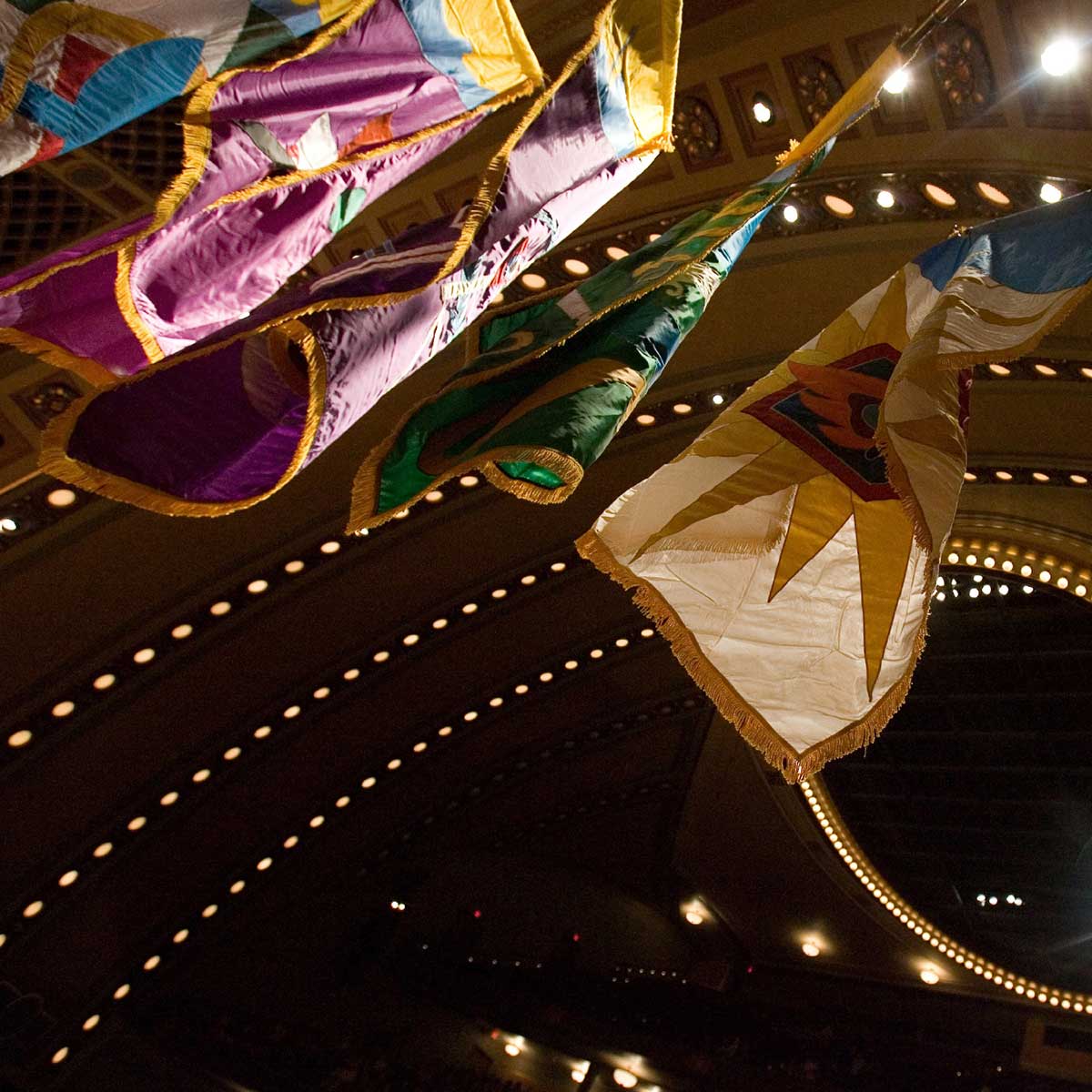
303 doctoral and 1,361 master’s students celebrated the end of a challenging school year with the completion of their Rackham degrees during our virtual graduation event.
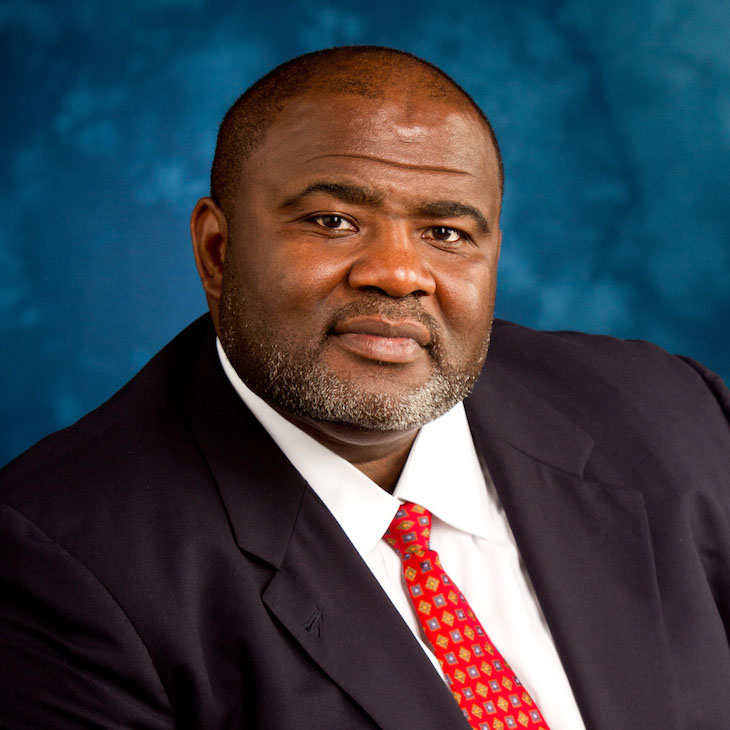
Chief Diversity Officer Rob Sellers shared his op-ed titled “I Am So Tired,” in a response to the murder of George Floyd and the uprisings that followed.
In an open letter to the graduate student community, Rackham Dean Mike Solomon decried racism and violence, and pledged Rackham's commitment to diversity, equity, and inclusion.
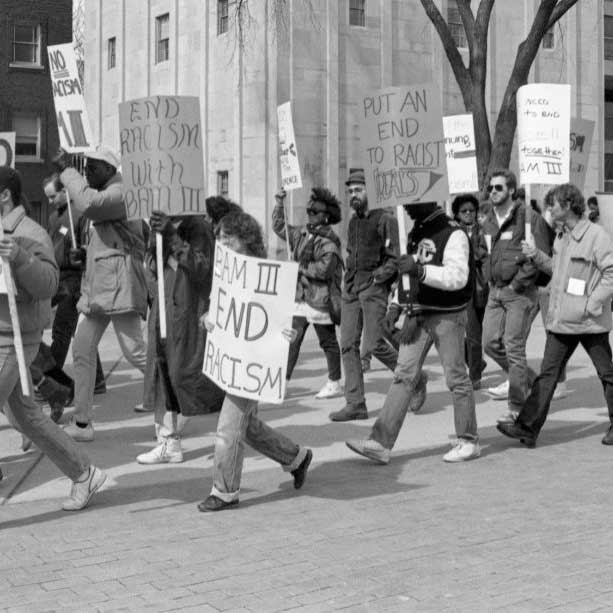
In 1985, the Minority Organization of Rackham was formed. Now called Students of Color of Rackham (SCOR), the group continues to expand support and advocacy for the academic, professional, and social needs of graduate students of color.
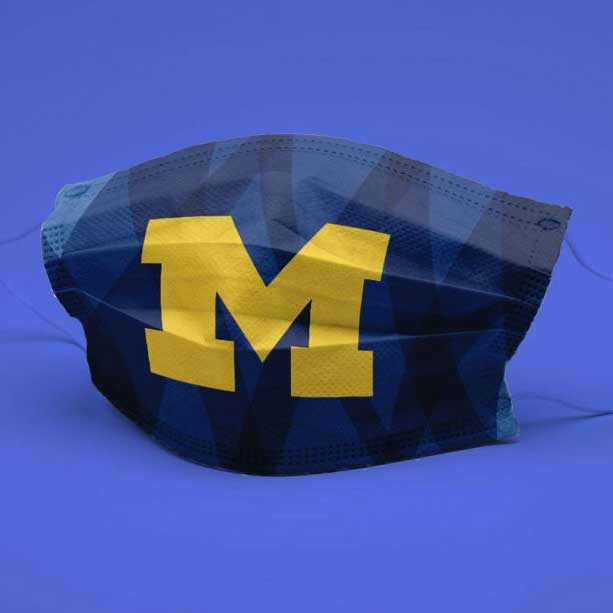
On June 23, the university announced it would begin ramping up research after a four-month pause. Graduate students shared their experiences, concerns, and insights as they returned to their labs and studios.
Two of our major graduate student summer programs, Michigan Humanities Emerging Research Scholars (MICHHERS) and the Summer Research Opportunity Program (SROP), pivoted to digitally deliver seminars, community building, small-group meetings, and other program content. Twenty-nine students participated in MICHHERS in 2020, and 24 students participated in SROP, a ten-week program that included Rackham’s first ever Virtual Research Fair to showcase the exceptional efforts of the emerging scholars.
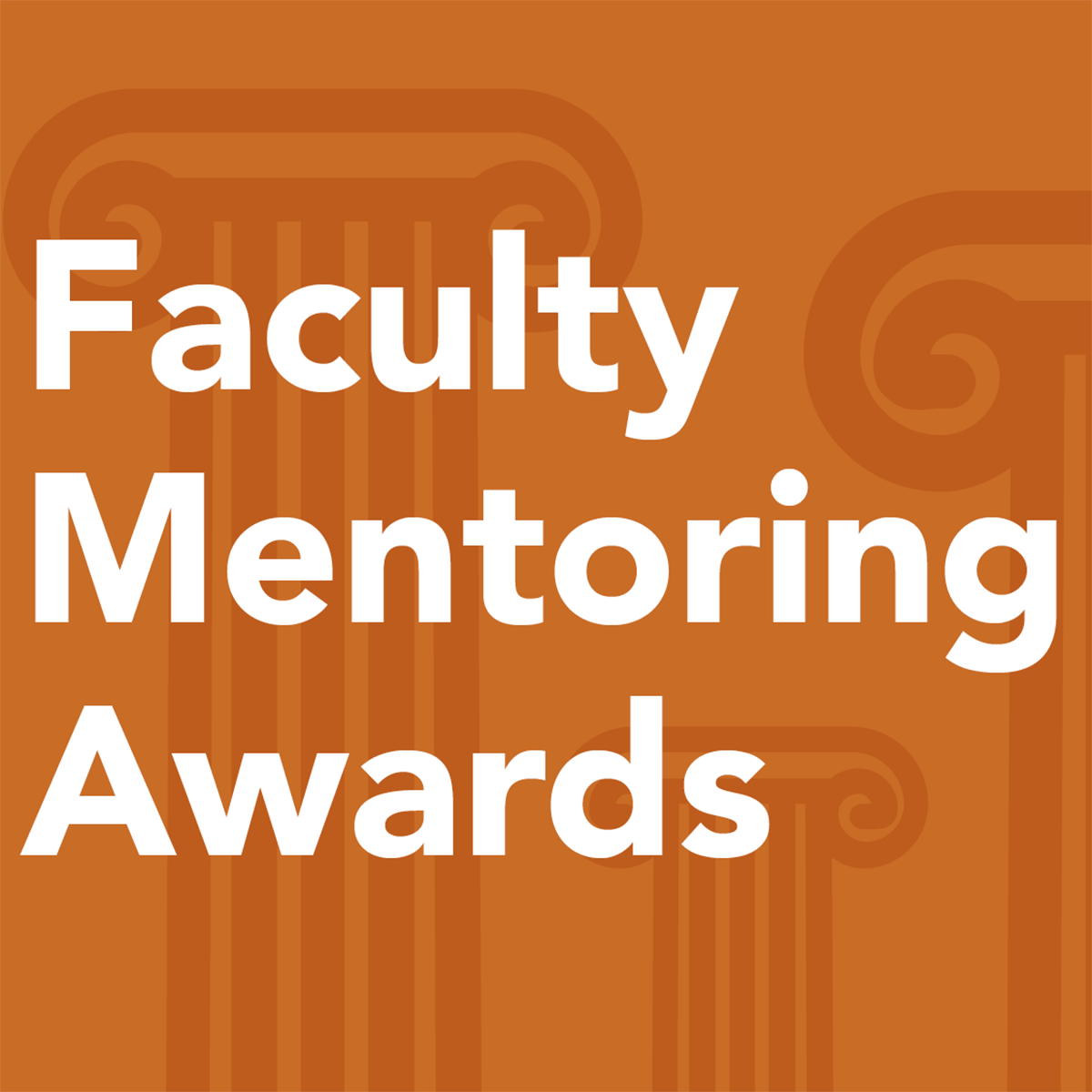
The Faculty Mentoring Awards recognize faculty with records of excellence in mentoring master's and doctoral students across the University of Michigan.
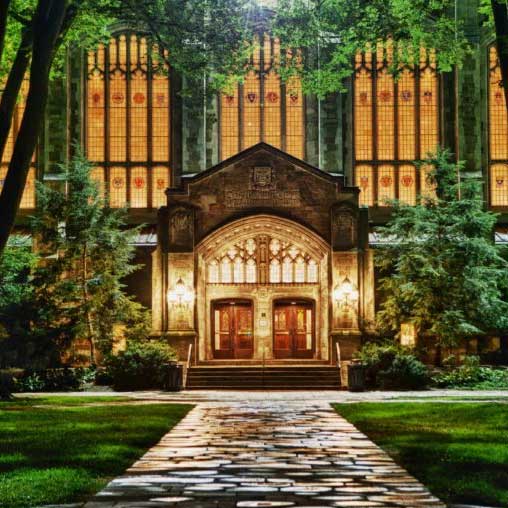
U-M spoke out in support of international students at risk of losing their visas during a virtual school year and joined a number of peer institutions in a lawsuit to reverse the decision.
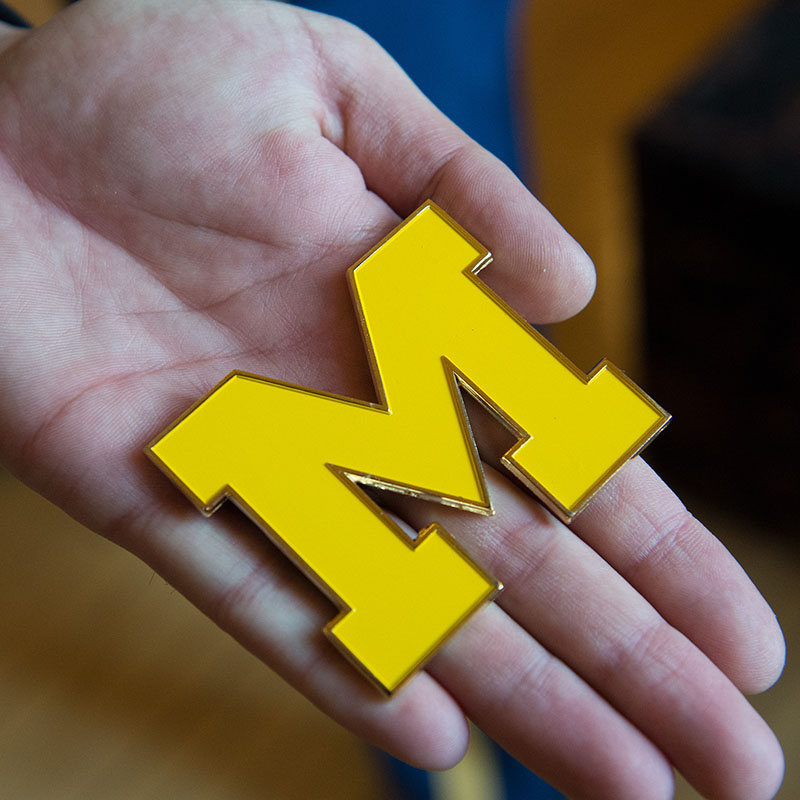
439 doctoral students and 407 master’s students completed their Rackham degrees.
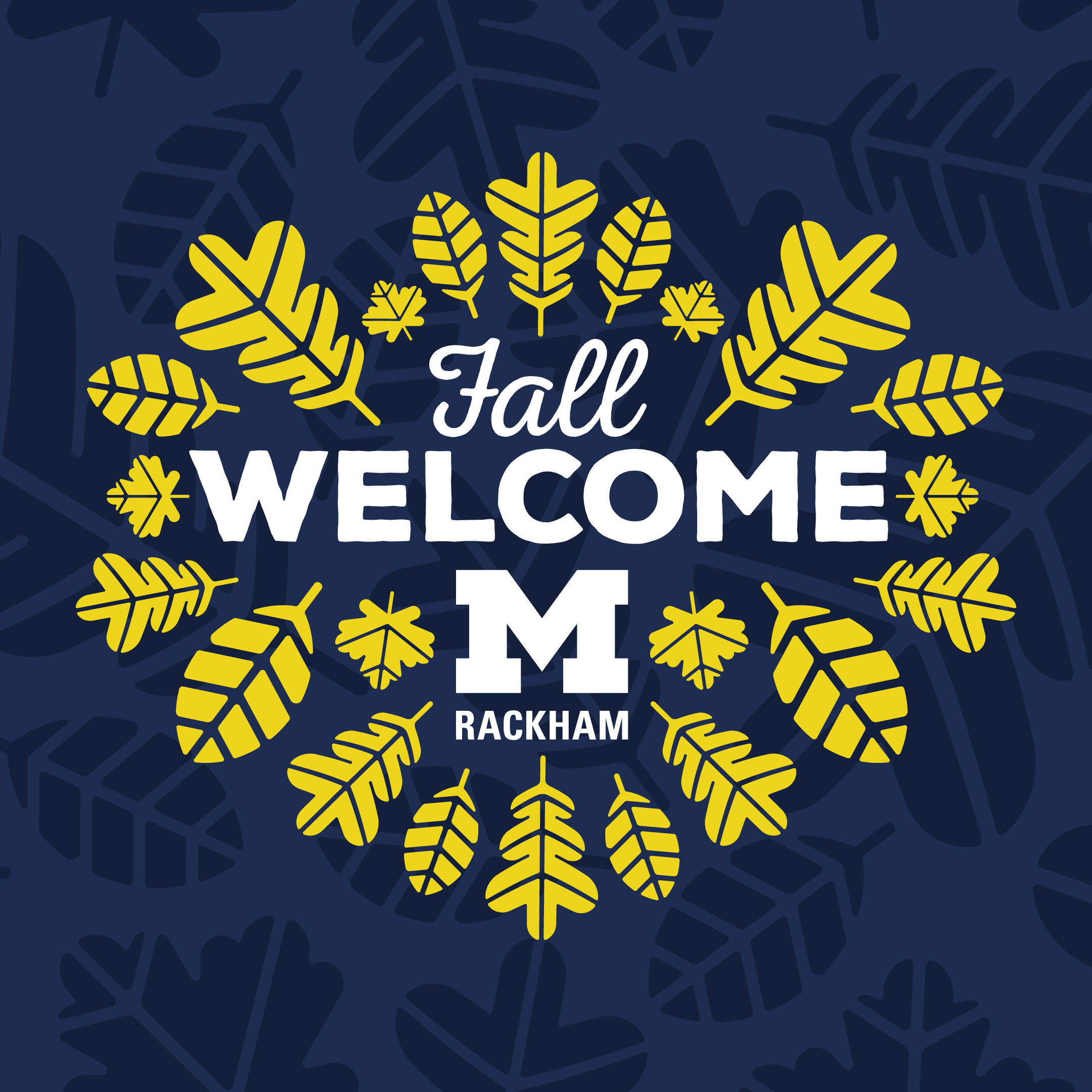
Fall Welcome greeted new Rackham students with a virtual resource fair and a welcome address from Dean Solomon.
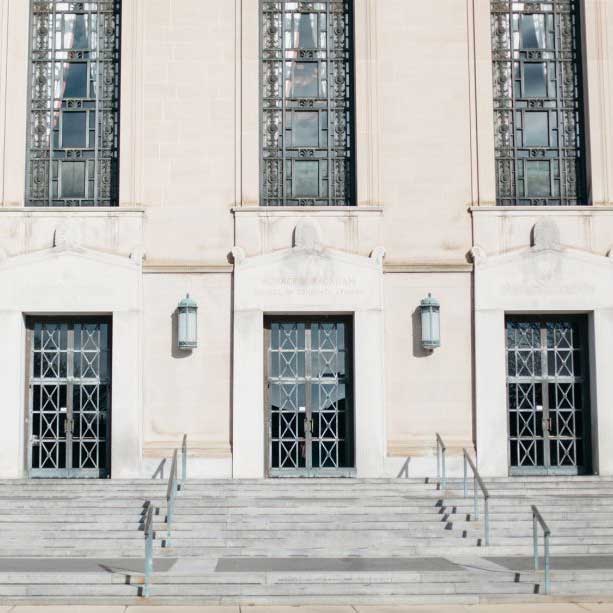
Rackham began a new academic year with expanded support resources for students including those of well-being, funding, and professional development.
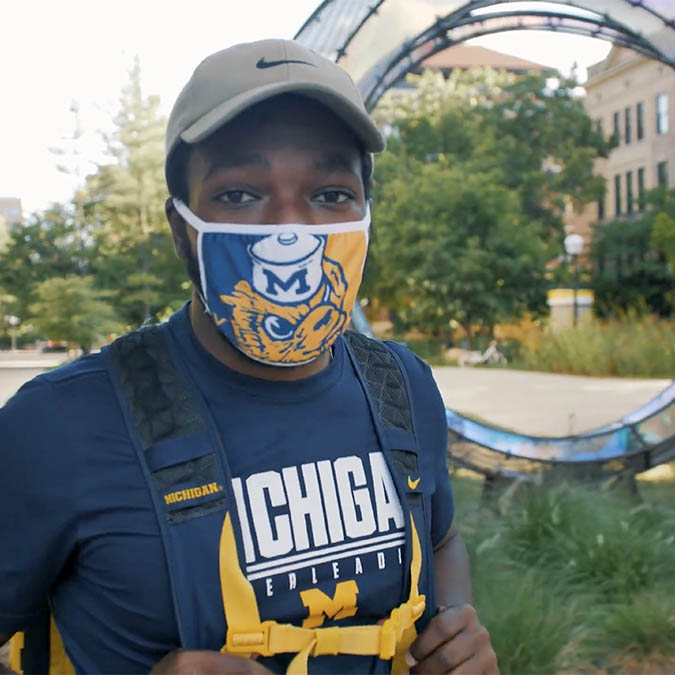
Rackham Graduate School hosted its second annual State of the Graduate School event. With more than 200 people virtually in attendance, Dean Solomon and a panel of graduate faculty and students discussed the challenges and opportunities for graduate education in this singular historical moment.
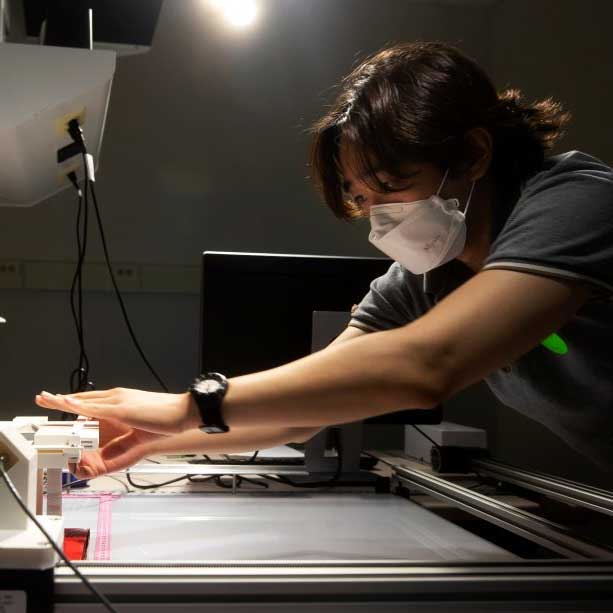
U-M joined a new Alliance for Graduate Education and the Professoriate (AGEP)—a group of nine universities who will address the lack of underrepresented minorities serving as faculty and postdoctoral fellows in STEM.
Ma Scholars from 2017 to 2020 gathered virtually with Rackham donor Karl Ma (B.B.A. 1993) to discuss their work, reflect on their experiences, and share how Ma’s funding helped them advance their academic and professional goals since he established the award.
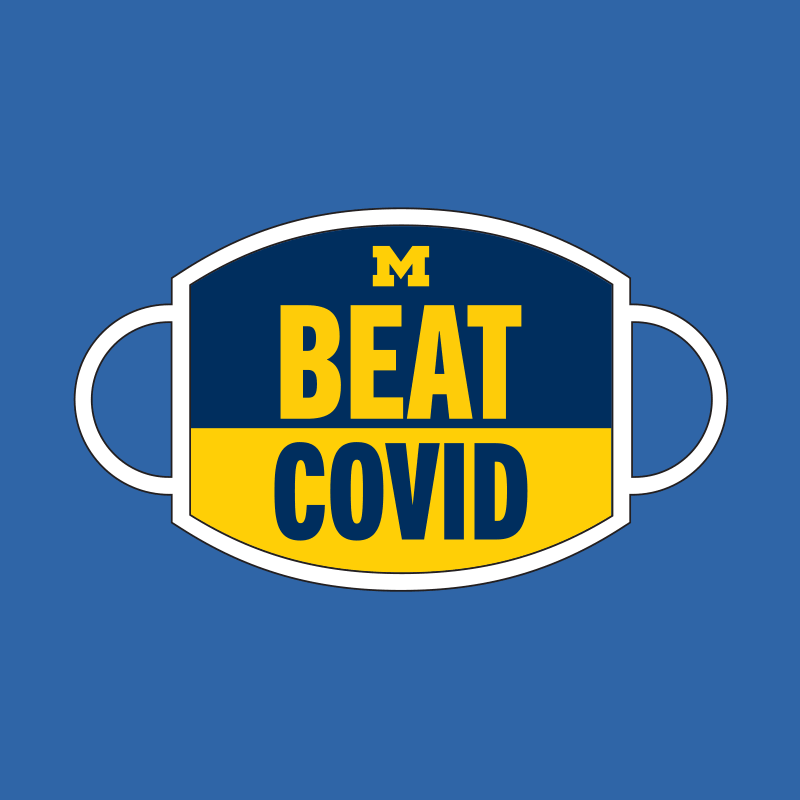
All classes meeting in hybrid settings went fully remote for the remainder of the year.
Rackham held its 60th virtual professional development workshop for the year. After starting the year strong with 23 in-person workshops, Rackham’s professional development team took their content online and finished the year having hosted 83 total workshops.

104 more doctoral and 611 master’s students closed out the year having completed their Rackham degrees.
We are grateful to everyone on the 2020 Honor Roll of Donors. In 2020 Rackham donors gave over 2,300 gifts totaling $4,143,412.49.
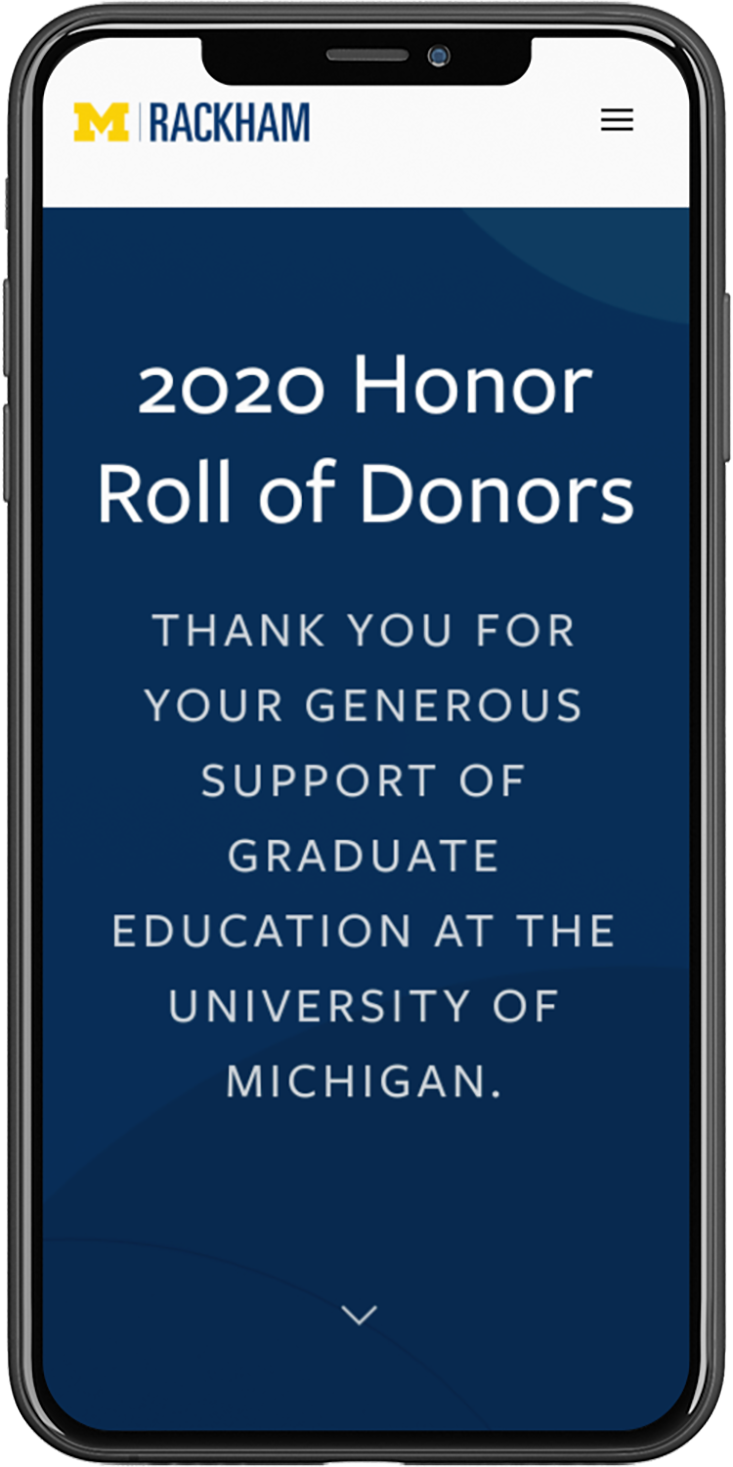
Horace Rackham, an attorney with a Detroit practice, was an early advisor to Henry Ford. In exchange for legal advice, Ford offered stock options to Horace, who invested in the new automobile venture. The investment made Horace a wealthy man. Upon his death in 1933, Horace’s widow Mary oversaw the fund that was established with proceeds from his estate. In 1935 Mary and the fund made a substantial gift to endow fellowships at the newly named Horace H. Rackham School of Graduate Studies and pay for the construction of the building which is now a campus landmark. Neither Horace nor Mary had U-M degrees, but they were committed to advanced education and research.
